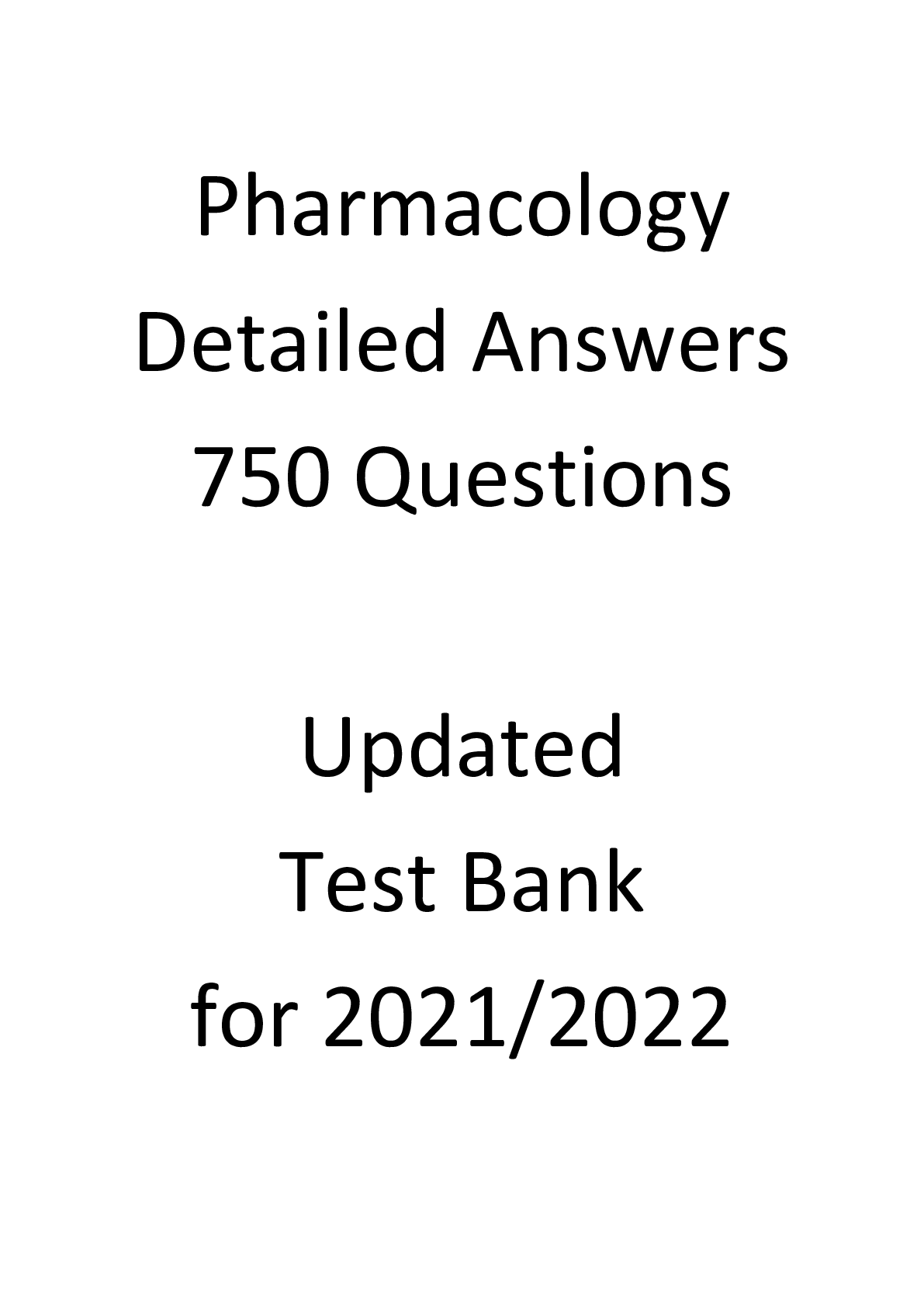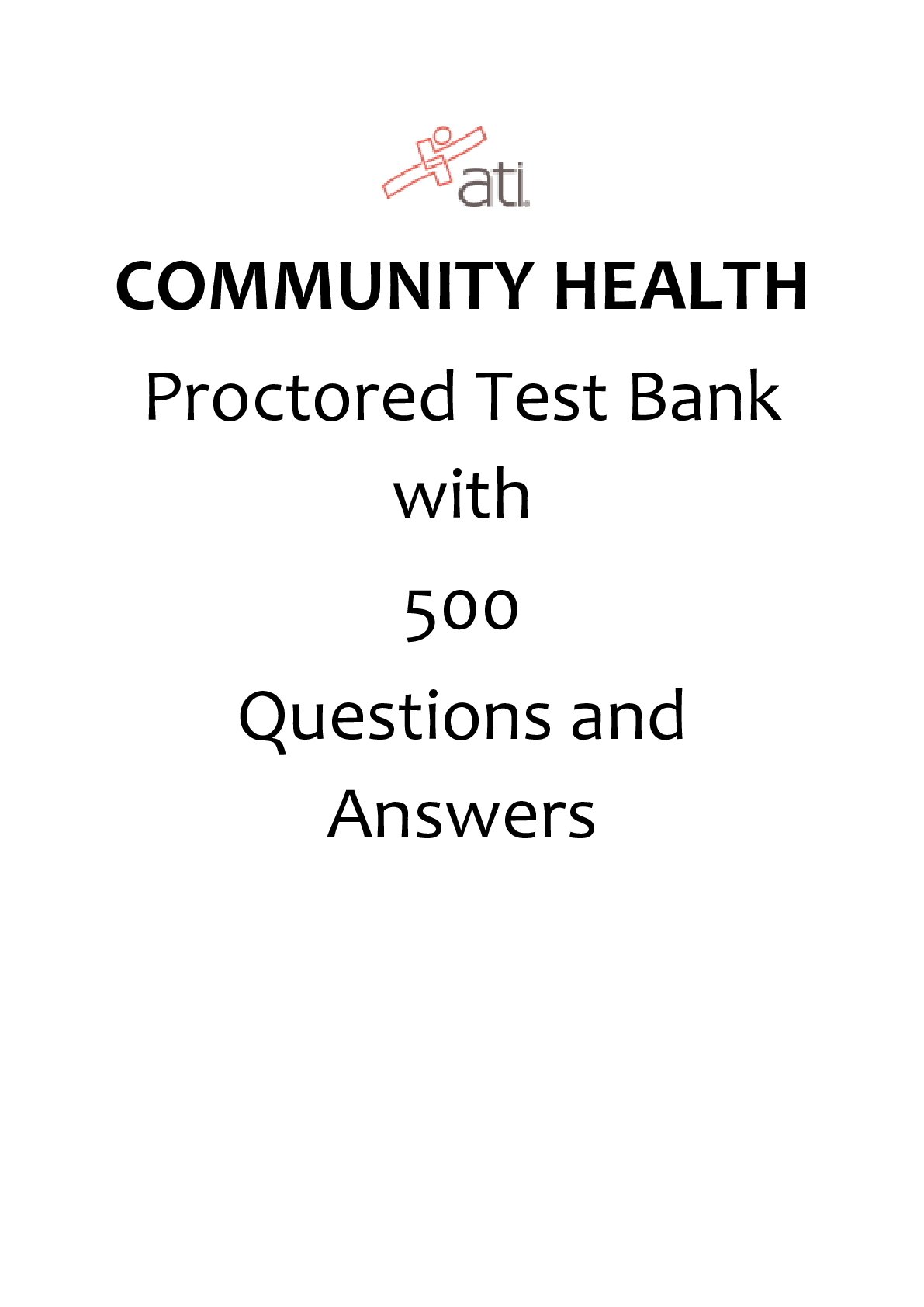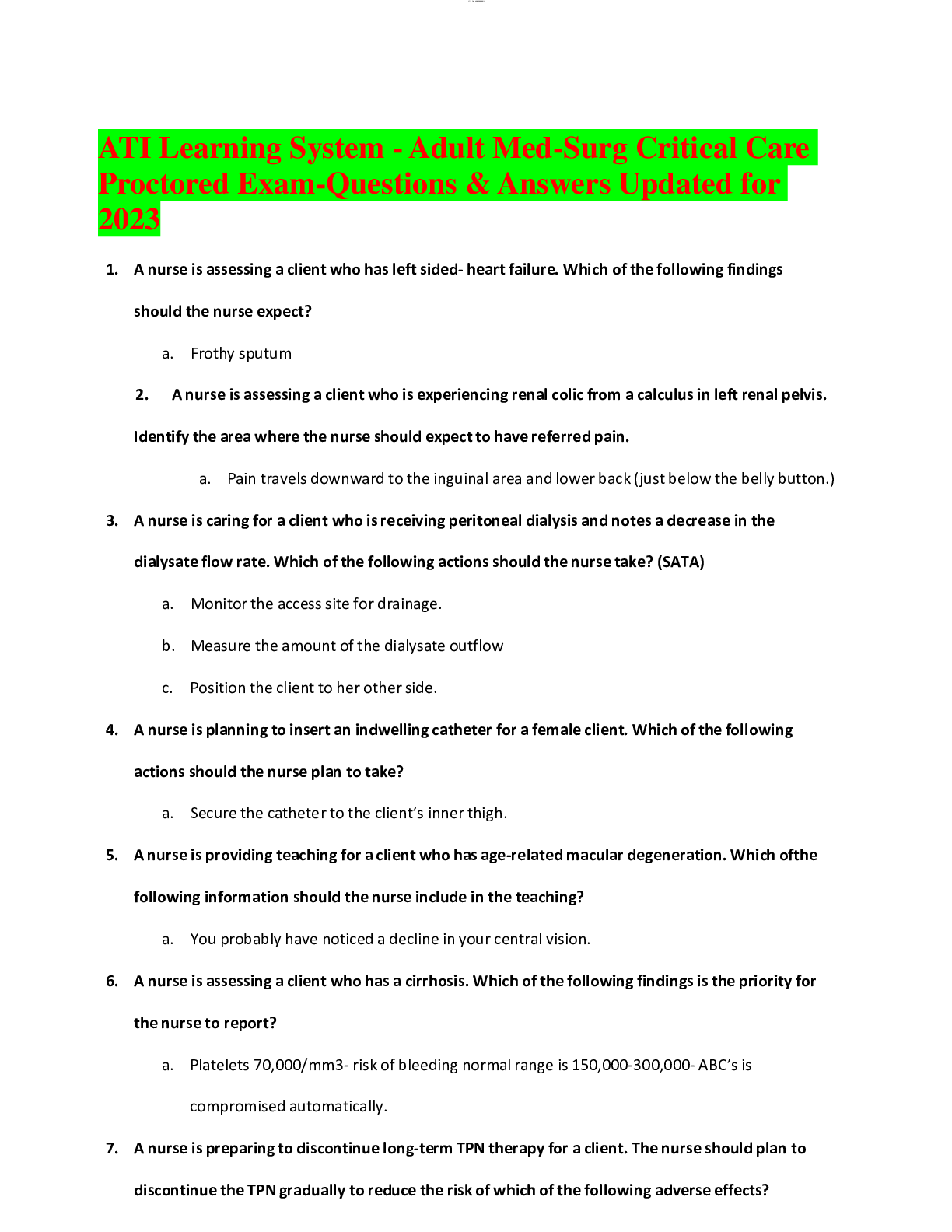Pharmacology Detailed Answers 3 Versions latest- 19.11.2021
Document Content and Description Below
A nurse is assessing a client who has systemic lupus erythematosus and is taking hydroxychloroquine. The nurse should report which of the following adverse effects to the provider immediately? A. Di... arrhea Rationale: Diarrhea is a potential adverse effect of hydroxychloroquine that the nurse should report to the provider; however, it is not the priority finding. B. Blurred vision Rationale: When using the urgent vs non-urgent approach to client care, the nurse should determine that the priority finding to report to the provider is blurred vision, as this is a manifestation of hydroxychloroquine toxicity and can be an indication of retinal damage. C. Pruritus Rationale: Pruritus is a potential adverse effect of hydroxychloroquine that the nurse should report to the provider; however, it is not the priority finding. D. Fatigue Rationale: Fatigue is a potential adverse effect of hydroxychloroquine that the nurse should report to the provider; however, it is not the priority finding.A nurse is caring for a client who has thrombophlebitis and is receiving a continuous heparin infusion. Which of the following medications should the nurse have available to reverse heparin's effects? A. Vitamin K Rationale: Vitamin K reverses the effects of warfarin, not heparin, by promoting the synthesis of coagulation factors VI, IX, X, and prothrombin. B. Protamine sulfate Rationale: Protamine sulfate reverses the effects of heparin by binding with heparin to form a heparin-protamine complex that has no anticoagulant properties. C. Acetylcysteine Rationale: Detailed Answer Key Acetylcysteine, a mucolytic, reduces the risk of hepatotoxicity after acetaminophen overdose. It does not reverse the effects of heparin toxicity. D. Deferasirox Rationale: A chelating agent such as deferasirox binds to iron to reduce iron toxicity from supplemental iron therapy. It does not reverse the effects of heparin toxicity.A nurse is admitting a client who states he takes ginkgo biloba every day to improve his memory. The nurse should identify a potential interaction with which of the following medications the client is taking? A. Ranitidine Rationale:There is no documented interaction between ginkgo biloba and ranitidine. B. Levothyroxine Rationale:There is no documented interaction between ginkgo biloba and levothyroxine. C. Warfarin Rationale: The nurse should identify a potential interaction between gingko biloba and warfarin. Ginkgo might suppress coagulation and should be used with caution with antiplatelet drugs such as [Show More]
Last updated: 1 year ago
Preview 1 out of 419 pages
Instant download

Buy this document to get the full access instantly
Instant Download Access after purchase
Add to cartInstant download
Reviews( 0 )
Document information
Connected school, study & course
About the document
Uploaded On
Nov 22, 2021
Number of pages
419
Written in
Additional information
This document has been written for:
Uploaded
Nov 22, 2021
Downloads
0
Views
252


.png)










